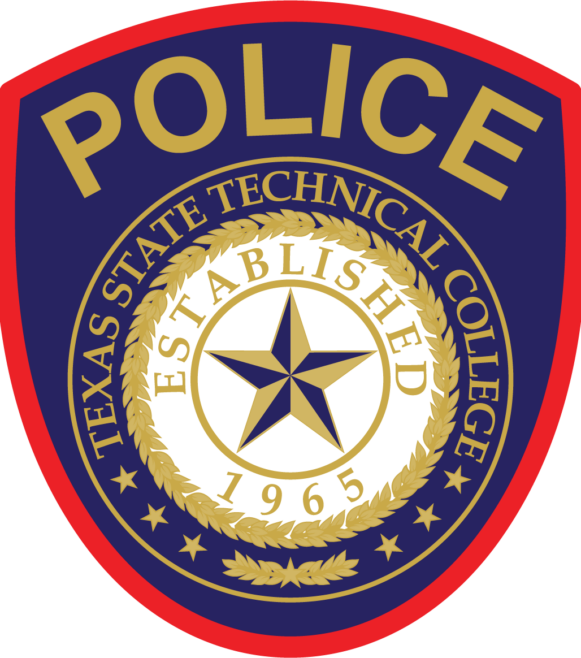Safety and security are essential to us. We want everyone to feel protected while on campus, whether you are a student, a faculty member, or a staff member.

Safety and security are essential to us. We want everyone to feel protected while on campus, whether you are a student, a faculty member, or a staff member.
Fort Bend County
832-586-2646 & 956-873-2677
Marshall
903-923-3351 & 903-503-2256
New Braunfels
956-364-4220 & 956-873-2677
TSTC Police Departments are here to provide a safe environment for you by:
Because a school is a unique community with unique objectives, we have established policies and rules to guide student, employee and visitor behavior. We enforce all federal and state laws and city ordinances.
Please become familiar with the rules outlined in the Student Code of Conduct and abide by them. We reserve the right to require your withdrawal at any time if your actions are deemed to be contrary to the best interests of the student body or TSTC.
We have developed a comprehensive safety program to identify and mitigate safety hazards for students, employees and visitors.
Get up-to-date travel information at the Texas Department of Transportation’s DriveTexas.org website.
If someone experiences a medical emergency:
When the decision is made to take shelter:
If you detect a fire:
Check out our Emergency Quick Reference Guide for what to do in an emergency.
If you believe that a student who resides in on-campus housing is missing, notify the TSTC Police Department immediately. TSTC Police will create a Missing Person Report and initiate an investigation.
If the TSTC Police find that the student has been missing for more than 24 hours, they will notify the student’s emergency contact or a confidentially identified individual.
In addition to an emergency contact, you can identify a confidential contact if you live in on-campus housing. This person will be notified if you are missing for more than 24 hours. However, if you are under 18 years old and are not an emancipated individual, federal law requires us to notify a parent or guardian.
Lost and found items are turned over to the TSTC Police Department or designated campus lead, who makes every effort to return the item(s) to the owner. If the owner cannot be reached, the property will be held for 30 days. After 30 days, the unclaimed property will be disposed of following the Texas Code of Criminal Procedure Article 18.17.